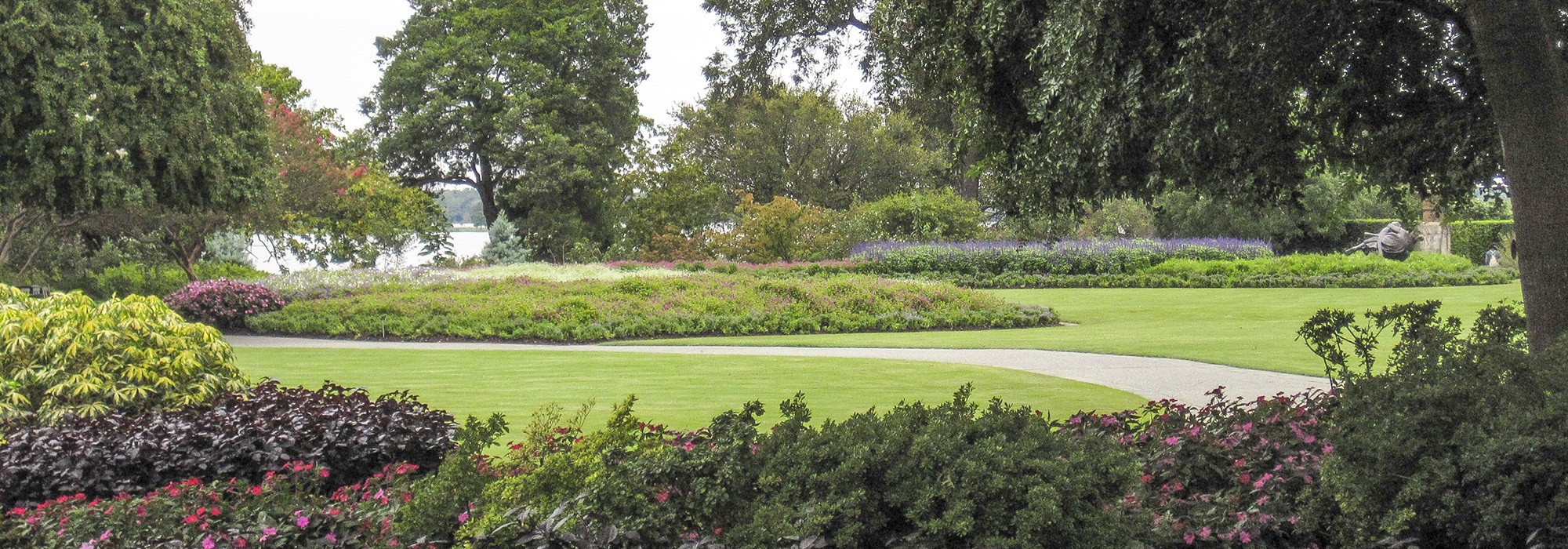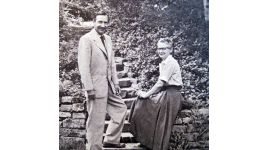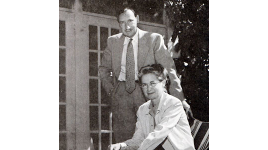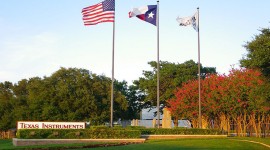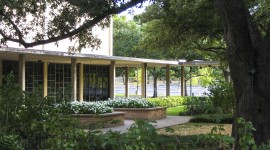Arthur Berger Biography
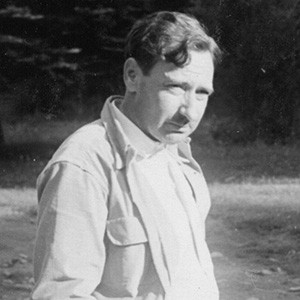
Arthur Schoene Berger and Marie Harbeck Berger were among the early practitioners of the modernist approach to landscape architecture pioneered by Thomas Church, Garrett Eckbo, and others.
Arthur S. Berger was born in Hartwell, Harvey County, Kansas, on December 19, 1903, the youngest of four children of Henry D. Berger and Magdelena Schoene. He graduated from the University of Kansas with a degree in Biology in 1925. Arthur distinguished himself at an early age, producing at 24 the first autoluminar photograph.
By 1927 Arthur traveled to Europe. He received his graduate degree in Landscape Architecture in 1928 from Harvard and was a finalist for the Rome Prize in 1929 and 1930. After working for one year with the Long Island State Park Commission in 1930, he worked for five years for landscape architect, Ferruccio Vitale. Arthur was sent by the Vitale office to oversee the landscape construction of the Toledo Art Museum in Ohio. While in the Midwest he lectured at the University of Kansas and, in 1933, was offered a teaching position in Botany by President Malott. He declined the offer but did assist the president with his plans for landscape improvements to the campus.
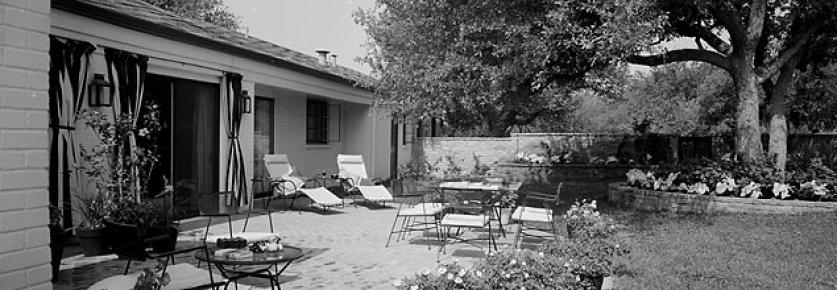
Encouraged to stay in the city by prominent Toledo residents, he formed the firm of Berger and Linnard with Lawrence G. Linnard [1901-1983]. From 1934 to 1937, they created the gardens of numerous large estates in the Toledo area including Elm House in Perrysburg, and other projects in Cleveland and Detroit, Michigan. From 1937 to 1944, Arthur spent his summers in Toledo and his winters in Dallas, Texas. He established a permanent residence in Dallas in 1939. This move was precipitated by the death of his brother Harry and a hard won commission to design the garden of Rancho Encinal, the residence of Texas Instrument founder, Everette Lee and his wife Nell DeGolyer on White Rock Lake in Dallas. This garden is now a key component of the Dallas Arboretum.
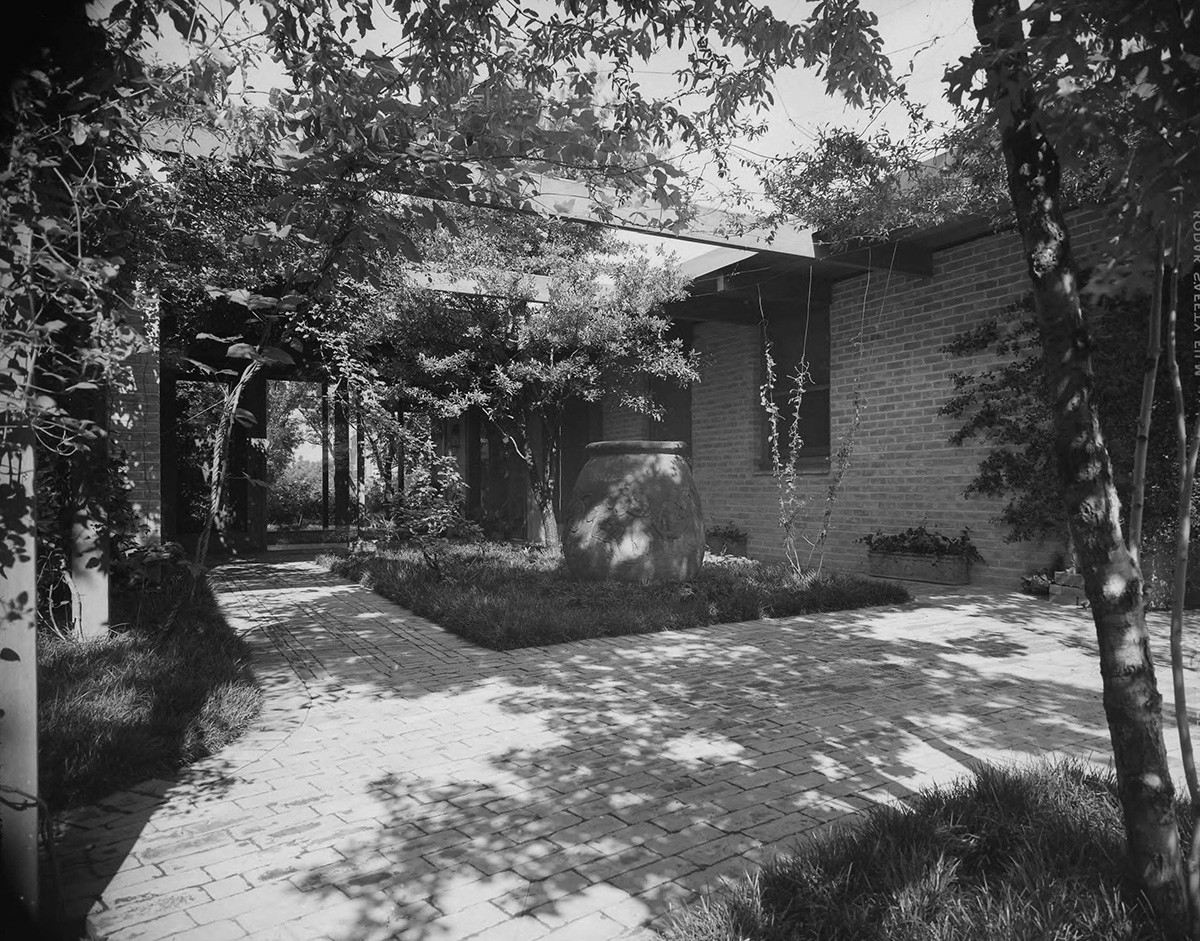
Marie Monica Harbeck Berger was born in Seattle, Washington, on June 11, 1907. She graduated with a Bachelor of Science in Landscape Architecture in 1932 from Oregon State University, the last year in which a professional degree program in Landscape Architecture was offered.
Professor Frederick A. Cuthbert, Marie’s long-time friend and mentor, assisted her in finding work with architect, Gardner T. Dailey from 1938 to 1940, and later in the office of Thomas Church in San Francisco. While there, she completed the design of the L.D. Owen residence in Sausalito and worked on numerous other projects in the office. She assisted with Oregon students’ visits to the Bay area and maintained a lifelong interest in the landscape program at the university.
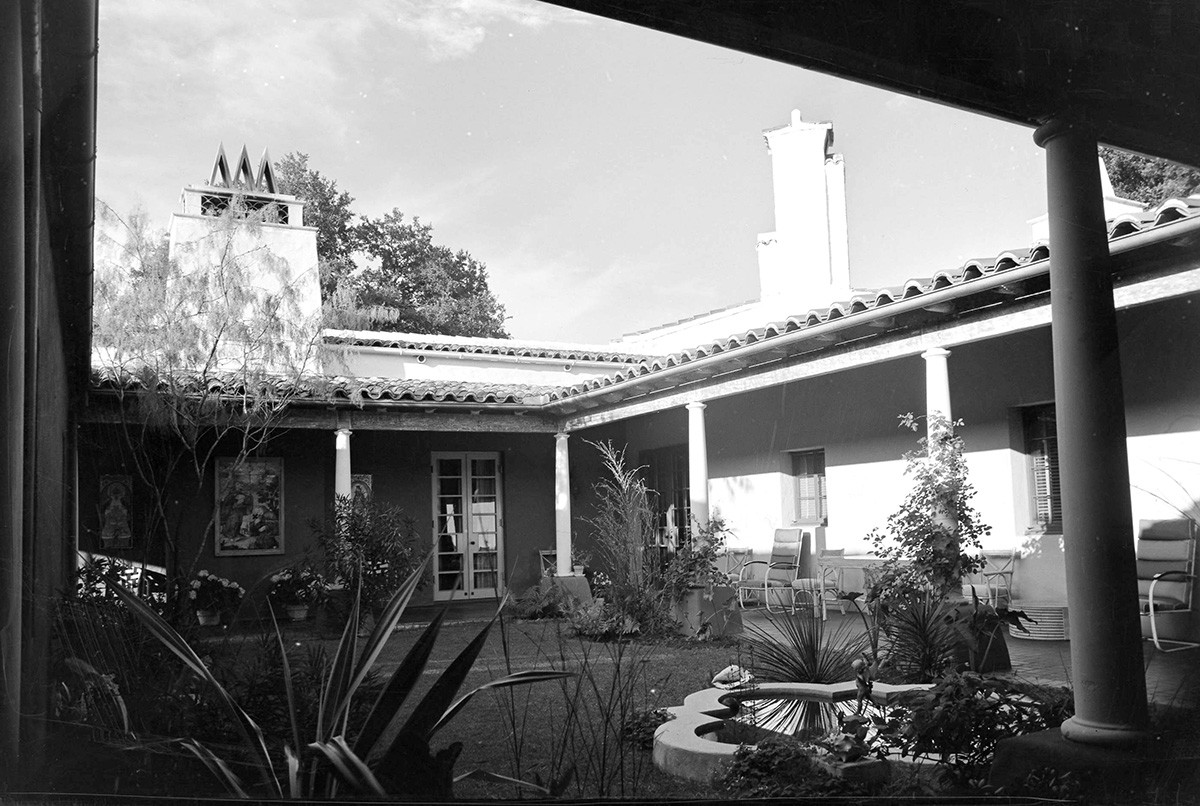
Nell DeGolyer introduced the Bergers to Texas architect O’Neil Ford. Their first collaboration was the home of Frank Murchison in San Antonio. Other Berger-Ford efforts followed including the Haggerty garden in Prestonwood, Dallas, and the Merritt, Penson, and McNaughton homes. Ford also designed the Berger’s home of Turtle Creek in Dallas in 1953.Marie exhibited at the Architectural League of New York prior to World War II and also experimented with fabric design. From 1942 to 1944, Marie contributed her design skills to the war effort by teaching camouflage techniques at the Camouflage Branch at Camp Belvoir, Virginia. There she met Arthur Berger. Arthur convinced Marie to join him in Dallas in 1945, first as his business partner, and then as his wife. The two were married in Dallas on July 5, 1946.
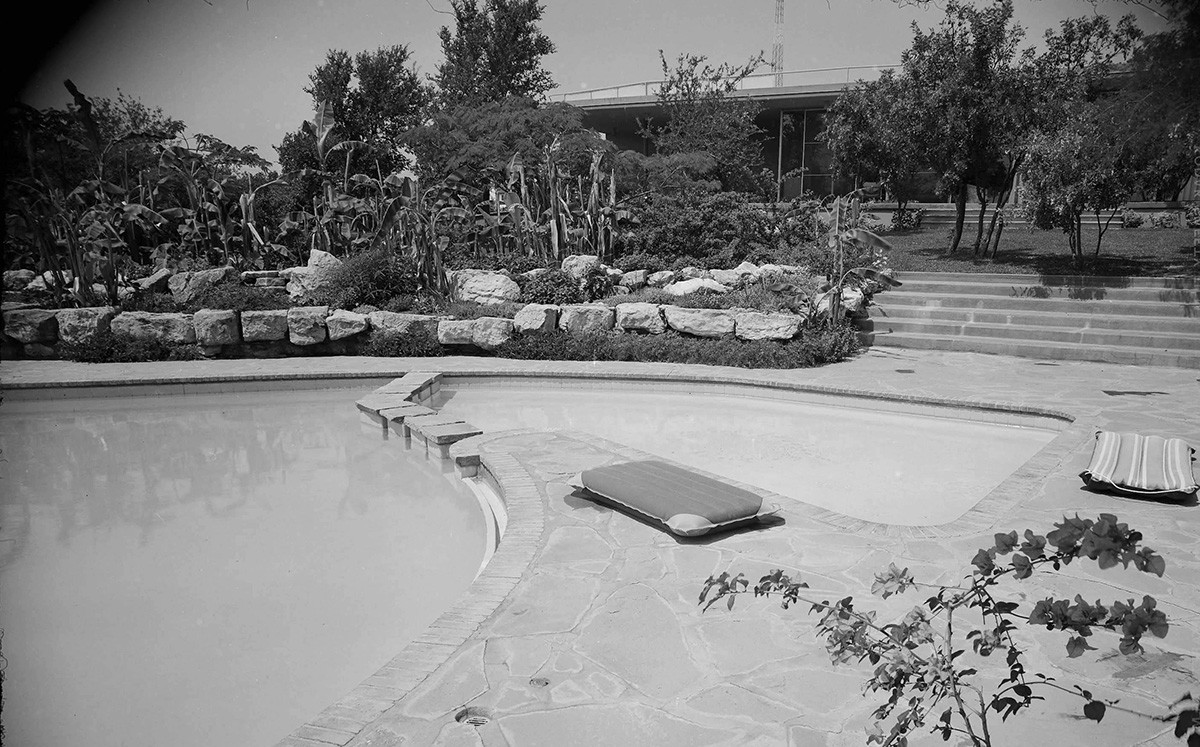
The Bergers became noted for their Texas gardens which utilized the interplay of light and shade, in what House and Garden editor Dr. Joseph E. Howland called “Texas Chiaroscuro.” Unlike Thomas Church and others who promoted large terraces as a means to outdoor living, Howland noted that the Bergers foresaw the universality of air-conditioned space and the movement indoors that it would bring. They designed 186 projects of which 147 were residential gardens. Other noteworthy gardens included the Fort Worth garden of Mr. and Mrs. O.P. Leonard, and the San Domingo Ranch, home of Texas oilman, Dudley T. Dougherty in Beeville, Texas. They also restored the gardens of Holly Hedges in Natchez, Mississippi.
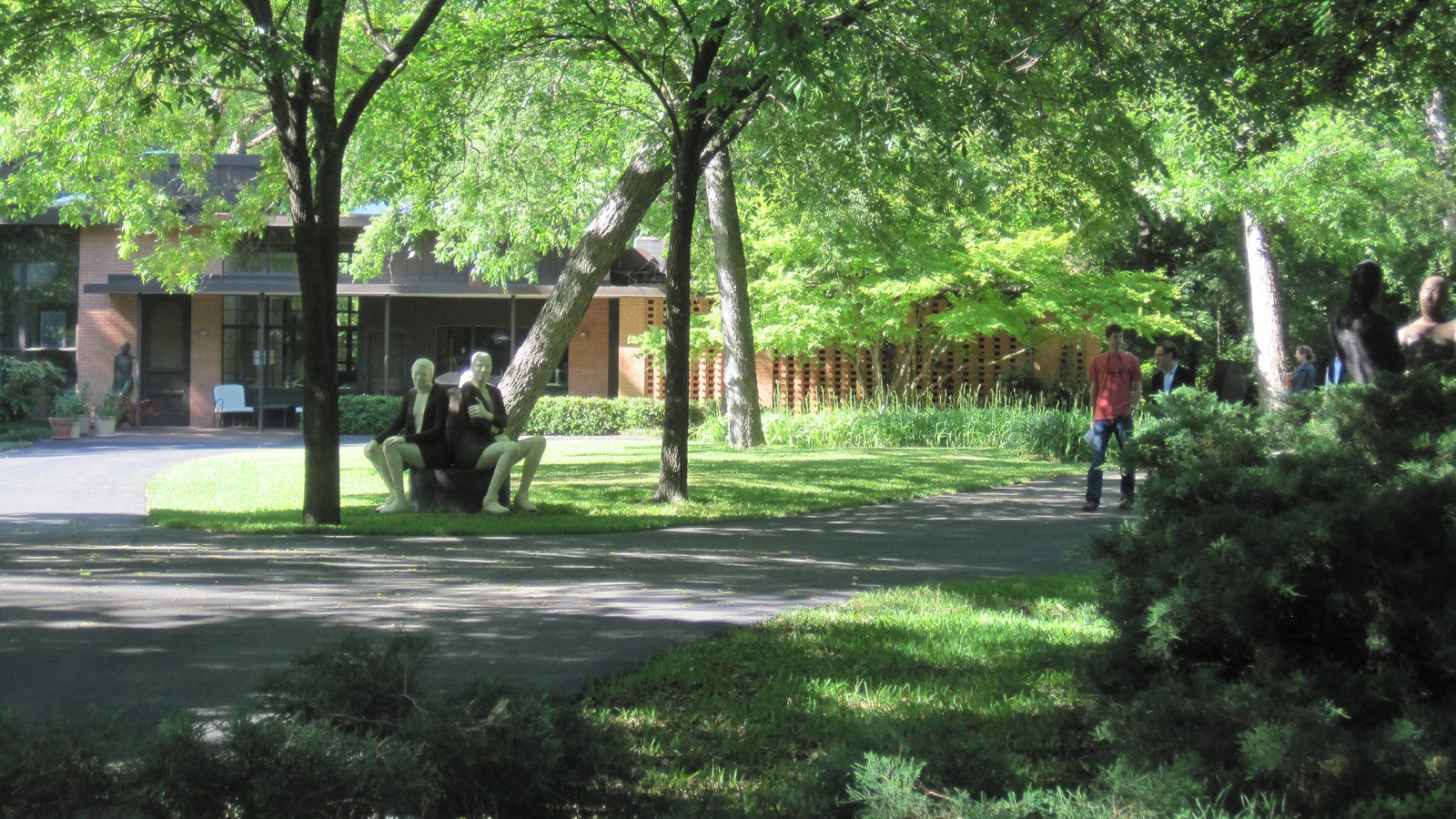
Both Arthur and Marie were noted for their gentle personalities. Their clients with whom they closely collaborated in creating their gardens adored them. They were soon recognized among the foremost landscape architects in the country. Over time they added partners, Houston B. Bliss and Dick Heiderich.
In addition to their residential work, they designed numerous college campuses, including Trinity University in San Antonio and the Science Quadrangle for St. Mark’s School. Their commercial and corporate work includes the Texas Instruments Headquarters in Dallas, their offices on Speedway in Houston, the Dallas Furniture Mart, and the grounds of the Dallas Morning News, the roof garden of the Dallas Public Library, and resorts in Jamaica and Texas. Many of their collaborations were with San Antonio architect, O’Neil Ford.
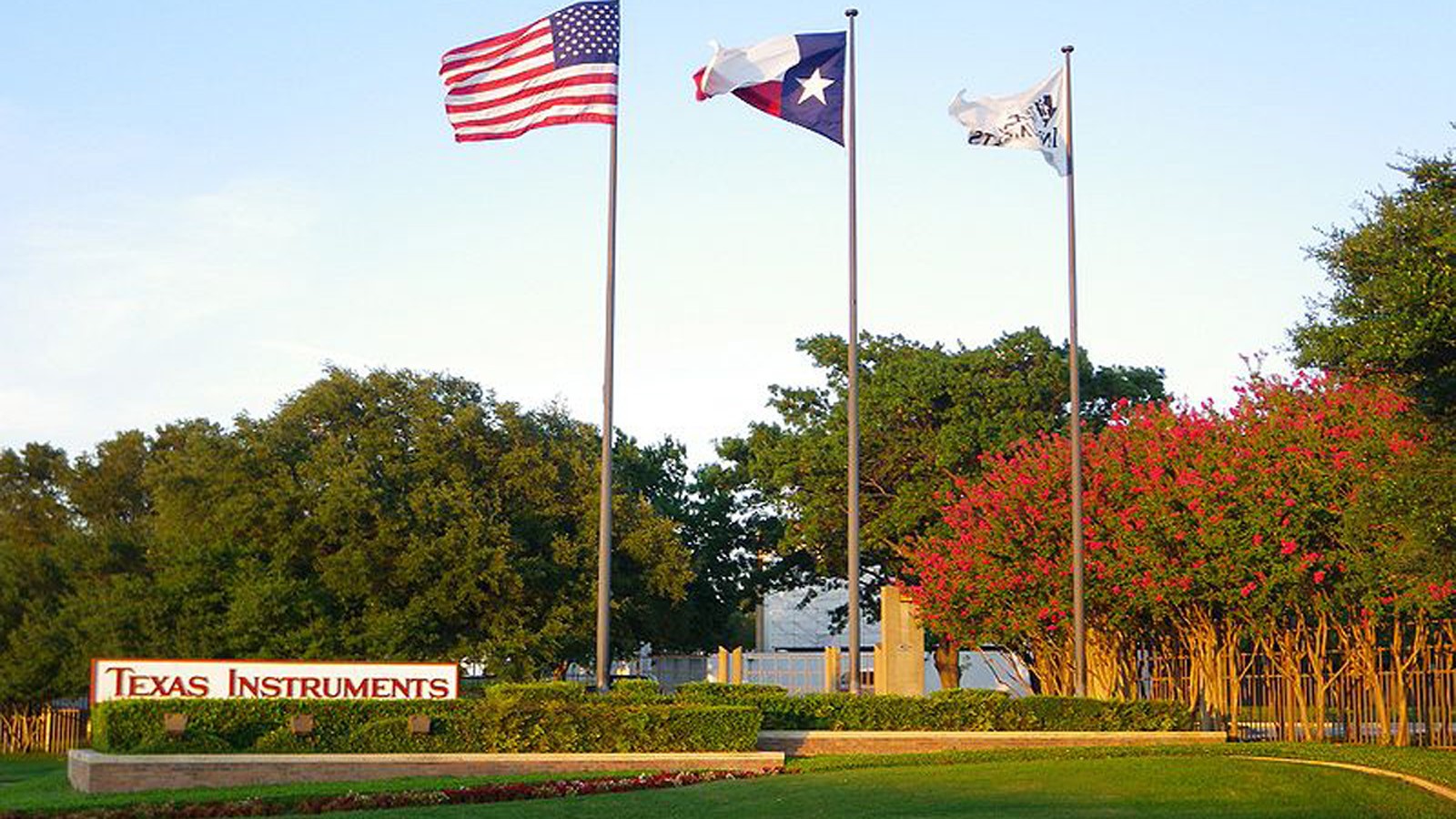
Arthur died tragically from injuries from an automobile accident in Dallas on August 13, 1960 at the age of 57. Following Arthur’s death, Marie returned to Eugene, Oregon. There she battled a brain tumor for several years, and suffered a stroke while preparing to return to Dallas to settle her affairs. Marie died on April 5, 1963. At the time of her death, she endowed scholarships in Landscape Architecture and Horticulture at the University of Oregon, Oregon State University, and Trinity University in San Antonio. In 1958, the Berger’s traveled to Europe where their work was featured at the International Landscape Architecture Exposition in Zurich, Switzerland. Arthur and Marie were tireless supporters of the profession, frequently lecturing to schools around the country. Arthur’s last lecture was at the University of North Carolina in 1958. The following year, he was named a Fellow of the American Society of Landscape Architects.
Bibliography
Berger, Arthur, “Plan the Shadows in Your Garden,” House and Garden 95, March 1949.
Howland, Dr. Joseph. “Marie and Arthur Berger, A Tribute,” Landscape Architecture, 1964.
Laurence, Dianne Susan Duffner, “A Symbiotic Relationship Between Mid-Century Modern Masters: The Collaborative Works of Arthur and Marie Berger, Landscape Architects and O’Neil Ford, Architect,” Master of Landscape Architecture Thesis, University of Texas at Arlington, 2007.
The Maynard Parker Collection. Huntington Library, San Marino, California.



